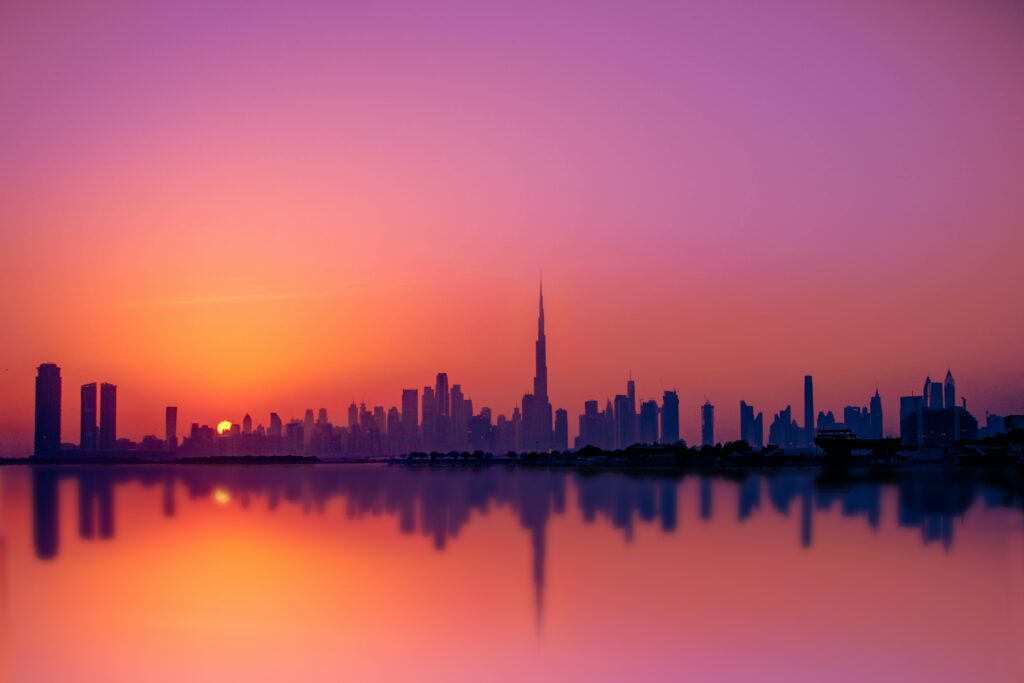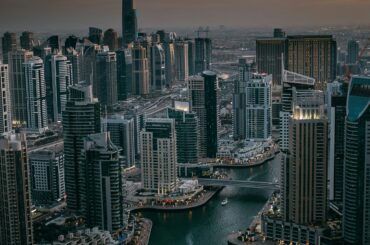Contents
Sewerage system in Dubai
Introduction
Dubai has witnessed unprecedented urban development and infrastructure growth over the past few decades, transforming from a desert outpost into a global city known for its skyscrapers, bustling economy, and vibrant culture.
Within this landscape of rapid urbanization, the sewerage system plays a crucial yet often overlooked role in sustaining the city’s livability and functionality.
Understanding the sewerage system’s significance is paramount for comprehending its vital role in ensuring public health, environmental sustainability, and the overall quality of urban life in Dubai.
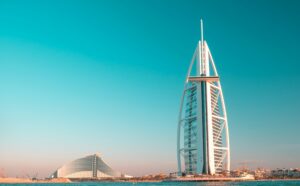
Evolution of Dubai’s Sewerage System
Historical background of sewage management in Dubai
In the early days of Dubai’s development, sewage management primarily relied on rudimentary systems such as open-air drains and cesspits.
Traditional sewage disposal methods were rudimentary and often resulted in environmental pollution and health hazards.
As the population grew and urbanization accelerated, the need for more advanced sewage management became apparent.
Transition from traditional sewage disposal methods to modern sewerage infrastructure.
With the onset of rapid urbanization and modernization, Dubai embarked on a journey to overhaul its sewage management practices.
The transition from traditional sewage disposal methods to modern sewerage infrastructure involved the implementation of underground sewer networks and centralized treatment facilities.
This transition marked a significant shift towards more efficient and environmentally sustainable sewage management practices.
Milestones in the development of Dubai’s sewerage system
Several milestones have punctuated the evolution of Dubai’s sewerage system, reflecting the city’s commitment to innovation and progress.
The establishment of the Dubai Municipality’s Sewerage and Irrigation Department in the 1970s marked the beginning of organized efforts to address sewage management challenges.
The construction of the Al-Aweer Sewage Treatment Plant in the 1980s represented a significant investment in wastewater treatment infrastructure, laying the groundwork for future developments.
The completion of the Dubai Sewerage Master Plan in the 1990s provided a comprehensive framework for the expansion and enhancement of the city’s sewerage system.
Subsequent investments in infrastructure upgrades, expansion projects, and technological innovations have further strengthened Dubai’s sewerage system, ensuring its resilience and adaptability to the city’s growing needs.
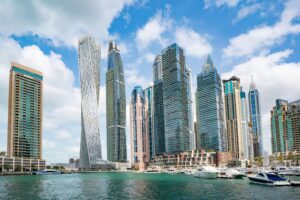
Components of Dubai’s Sewerage System
Collection Network: Overview of the extensive network of underground pipes
Dubai’s sewerage system features an extensive network of underground pipes that crisscross the city, efficiently collecting wastewater from residential, commercial, and industrial areas.
These pipes are strategically laid out to ensure comprehensive coverage and facilitate the smooth flow of wastewater to treatment facilities.
The collection network includes main sewer lines, branch lines, and smaller lateral pipes, all interconnected to form a cohesive system that effectively channels wastewater for treatment.
Treatment Plants: Description of advanced treatment facilities and technologies
Dubai boasts several advanced wastewater treatment plants equipped with cutting-edge technologies to ensure the effective treatment of sewage.
These treatment plants employ a combination of physical, chemical, and biological processes to remove contaminants and pathogens from wastewater.
Advanced treatment technologies such as membrane filtration, ultraviolet disinfection, and activated sludge processes are utilized to achieve high levels of purification.
The treated wastewater undergoes rigorous quality testing to ensure compliance with regulatory standards before being discharged or reused.
Effluent Reuse: Discussion on the reuse of treated wastewater for various purposes
Treated wastewater from Dubai’s treatment plants is not merely discharged into the environment but is instead repurposed for a variety of beneficial uses.
Effluent reuse initiatives in Dubai include the use of treated wastewater for irrigation in landscaping, agriculture, and public parks.
Treated wastewater is also utilized for industrial processes, cooling systems, and non-potable applications, reducing reliance on freshwater sources and promoting sustainability.
Effluent reuse initiatives contribute to water conservation efforts and support Dubai’s vision for a circular economy, where resources are efficiently managed and reused to minimize waste and environmental impact.
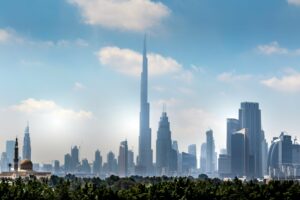
Technological Innovations and Sustainability Practices
Advanced Treatment Processes: Explanation of cutting-edge technologies employed in wastewater treatment.
Dubai’s sewerage system incorporates advanced treatment processes that utilize state-of-the-art technologies to achieve efficient and effective wastewater purification.
Cutting-edge treatment methods such as membrane bioreactors, reverse osmosis, and ultraviolet disinfection are employed to remove contaminants and pathogens from wastewater.
These advanced treatment processes ensure that treated wastewater meets stringent quality standards, making it suitable for various reuse applications and minimizing environmental impact.
Sustainable Practices: Exploration of Dubai’s initiatives for water reuse and conservation
Dubai is at the forefront of sustainable water management practices, with a strong focus on water reuse and conservation.
Effluent reuse initiatives play a crucial role in Dubai’s water sustainability strategy, with treated wastewater being utilized for irrigation, industrial processes, and non-potable applications.
Additionally, Dubai implements water conservation measures such as smart irrigation systems, leak detection programs, and public awareness campaigns to reduce water consumption and promote responsible usage.
These sustainable practices not only contribute to water conservation efforts but also support Dubai’s overall goal of achieving environmental sustainability and resilience.
Integration of Smart Technologies: Role of technology in monitoring and managing the sewerage system efficiently
Smart technologies play a pivotal role in monitoring and managing Dubai’s sewerage system efficiently and effectively.
Advanced sensors, remote monitoring systems, and real-time data analytics are utilized to monitor wastewater flow rates, detect leaks, and optimize system performance.
Smart technologies enable proactive maintenance and management of the sewerage network, minimizing downtime, reducing operational costs, and enhancing overall system reliability.
Furthermore, the integration of smart technologies facilitates data-driven decision-making, enabling authorities to respond swiftly to changing conditions and ensure the seamless operation of the sewerage system.

Environmental and Public Health Impacts
Benefits of Proper Sewage Management: Discussion on the importance of wastewater treatment for public health and environmental sustainability
Proper sewage management, including wastewater treatment, is essential for safeguarding public health and protecting the environment.
Effective wastewater treatment reduces the risk of waterborne diseases by removing harmful pathogens and contaminants from sewage before it is discharged into water bodies.
Wastewater treatment also helps prevent environmental pollution by minimizing the release of pollutants such as nutrients, heavy metals, and chemicals into the environment.
By ensuring clean waterways and preserving natural ecosystems, proper sewage management contributes to the overall well-being of communities and supports sustainable development.
Challenges and Solutions: Examination of challenges faced by Dubai’s sewerage system and strategies for mitigation.
Despite its advancements, Dubai’s sewerage system faces several challenges, including population growth, urbanization, and infrastructure aging.
Rapid urban development and population growth strain existing infrastructure, leading to capacity constraints and operational challenges.
Climate change impacts such as extreme weather events and rising sea levels pose additional challenges to sewage management infrastructure.
To address these challenges, Dubai implements various strategies, including infrastructure upgrades, expansion projects, and the integration of innovative technologies.
Additionally, proactive maintenance, regular inspections, and emergency response plans help mitigate risks and ensure the resilience of the sewerage system in the face of challenges.
Role in Climate Resilience: Highlighting the sewerage system’s role in enhancing Dubai’s resilience to climate change impacts
Dubai’s sewerage system plays a critical role in enhancing the city’s resilience to climate change impacts, particularly in mitigating flood risks and protecting public health.
Climate change-induced events such as heavy rainfall and storm surges can overwhelm sewerage infrastructure, leading to flooding and environmental contamination.
By investing in climate-resilient infrastructure, Dubai strengthens its ability to withstand and adapt to climate change impacts, reducing the vulnerability of communities and ecosystems.
Additionally, sustainable sewage management practices, such as water reuse and conservation, contribute to climate resilience by reducing reliance on freshwater sources and minimizing environmental degradation.
Overall, Dubai’s sewerage system plays a pivotal role in building climate resilience and ensuring the long-term sustainability of the city’s infrastructure and environment.

Governance and Management
Government Regulations and Policies: Overview of regulatory frameworks governing sewage management in Dubai.
Dubai’s sewage management is governed by a comprehensive set of regulations and policies established by government authorities.
Regulatory frameworks ensure compliance with environmental standards, health regulations, and safety protocols throughout the sewage management process.
The Dubai Municipality, along with other relevant government agencies, oversees the development and enforcement of sewage management regulations to protect public health and the environment.
Collaboration and Partnerships: Role of government agencies, private sector entities, and community stakeholders in managing the sewerage system.
Effective management of Dubai’s sewerage system requires collaboration and partnerships among various stakeholders, including government agencies, private sector entities, and community organizations.
Government agencies play a central role in planning, implementing, and regulating sewage management activities, while private sector entities contribute through infrastructure development, operation, and maintenance.
Community stakeholders, including residents and businesses, are engaged through public awareness campaigns, stakeholder consultations, and community outreach initiatives to promote responsible sewage practices and support sustainable sewage management efforts.
Maintenance and Monitoring: Importance of regular maintenance and monitoring for ensuring the system’s efficiency and reliability
Regular maintenance and monitoring are essential for ensuring the efficiency, reliability, and safety of Dubai’s sewerage system.
Maintenance activities, including cleaning, inspection, and repair of sewer lines and treatment facilities, help prevent blockages, leaks, and other system failures.
Continuous monitoring of wastewater quality, flow rates, and system performance enables early detection of issues and allows for timely intervention to prevent disruptions.
Advanced technologies, such as remote monitoring systems and real-time data analytics, support proactive maintenance and monitoring efforts, enhancing the overall resilience and effectiveness of the sewerage system.
Effective governance and management practices, supported by robust regulations, collaborative partnerships, and proactive maintenance and monitoring, are essential for ensuring the long-term sustainability and resilience of Dubai’s sewerage system. Through concerted efforts and ongoing investment in infrastructure and management capabilities, Dubai can continue to meet the evolving challenges of urbanization and climate change while safeguarding public health and the environment.
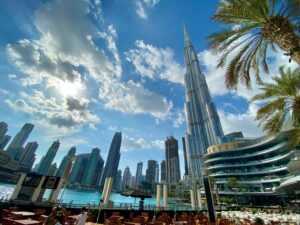
Future Outlook and Challenges
Emerging Trends: Discussion on future trends and innovations in sewage management
The future of sewage management in Dubai is characterized by ongoing advancements in technology, sustainability, and resilience.
Emerging trends include the adoption of smart sewage management systems leveraging Internet of Things (IoT) technology for real-time monitoring and control.
Innovations such as decentralized wastewater treatment systems, including onsite treatment solutions and green infrastructure, are gaining traction for their ability to enhance efficiency and reduce environmental impact.
Additionally, research and development efforts are focused on exploring alternative treatment methods, such as advanced oxidation processes and resource recovery technologies, to maximize resource efficiency and minimize waste.
Anticipated Challenges: Identification of potential challenges and strategies for addressing them
Despite progress, Dubai’s sewerage system will continue to face challenges in the future, including population growth, urbanization, and climate change.
Population growth and urban expansion will increase the demand for sewage services, requiring infrastructure upgrades and expansion to accommodate growing needs.
Climate change-induced events such as sea-level rise, extreme weather events, and water scarcity may pose challenges to sewage infrastructure resilience and operation.
To address these challenges, Dubai must adopt a holistic approach that integrates climate resilience, sustainability, and innovation into sewage management strategies.
Strategies for addressing future challenges may include investing in resilient infrastructure, implementing adaptive management practices, and promoting water conservation and reuse.
Vision for Sustainable Urban Development: Reflection on the role of the sewerage system in Dubai’s vision for a sustainable and resilient city
Dubai’s sewerage system plays a pivotal role in realizing the city’s vision for sustainable urban development and resilience.
As part of Dubai’s broader sustainability agenda, the sewerage system contributes to water conservation, environmental protection, and public health.
By embracing innovative technologies, sustainable practices, and collaborative governance models, Dubai aims to build a resilient sewerage system that supports the city’s growth while minimizing environmental impact.
Ultimately, Dubai envisions a future where the sewerage system serves as a cornerstone of a sustainable and resilient city, ensuring the well-being and prosperity of its residents for generations to come.
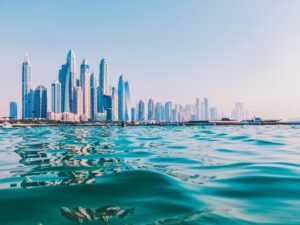
Conclusion
In conclusion, Dubai’s sewerage system stands as a testament to the city’s commitment to innovation, sustainability, and resilience in urban development. Throughout its evolution, from rudimentary sewage management practices to modern infrastructure, Dubai has demonstrated a proactive approach to addressing the challenges of rapid urbanization and environmental sustainability.
This article has highlighted key aspects of Dubai’s sewerage system, including its evolution, components, governance, and future outlook. From the extensive network of underground pipes to advanced treatment facilities and innovative technologies, Dubai’s sewerage system plays a critical role in supporting urban development, protecting public health, and promoting environmental sustainability.
As Dubai continues to grow and evolve, the importance of continued investment and innovation in sewage management cannot be overstated. Addressing emerging challenges such as population growth, climate change, and urbanization requires proactive measures and collaborative efforts from government agencies, private sector partners, and community stakeholders.
Therefore, stakeholders must heed the call to action and prioritize continued investment and innovation in sewage management to support Dubai’s growth and prosperity. By embracing sustainable practices, harnessing innovative technologies, and fostering collaboration, Dubai can build a resilient sewerage system that not only meets the needs of its residents but also contributes to the city’s vision for a sustainable and prosperous future.
In summary, Dubai’s sewerage system is more than just infrastructure; it is a cornerstone of urban development, public health, and environmental sustainability. By recognizing its importance and investing in its continued enhancement, Dubai can pave the way for a brighter, healthier, and more sustainable future for generations to come.

